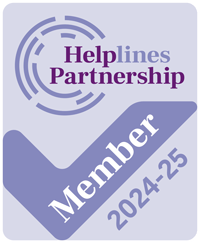Mental health, information and diagnosis were highlighted as areas of focus for the WM community.
Last summer, over 500 patients, family members, friends and carers completed the Big WM Survey, run by WMUK. The results have shed light on key areas of support needed by people affected by Waldenstrom’s macroglobulinaemia (WM) to help them live well with the disease.
What was the Big WM Survey?
The Big WM Survey was open for three weeks in August 2024, comprising of two surveys aimed specifically at 1) WM/LPL patients and 2) family members, friends and unpaid carers of WM/LPL patients. Questions focussed on the diagnosis, information, treatment, active monitoring, and support experiences of respondents, with another section dedicated to their experiences of using WMUK services.
Of the respondents to both surveys, 372 were valid. 85% were patients, and 15% were family members, friends or unpaid carers. Patient respondents were more skewed to females with 59% identifying as female and 41% as male.
Areas of focus
The results of the survey painted a picture of a lack of consistent care across the UK, particularly around mental health, a lack of information and the diagnosis experience. Read the statistical summary here.
Mental health
The first key theme from the results was the psychological burden patients and their loved ones often carry, from having to fight to be diagnosed, through to long periods without regular check-ups or treatment, and managing the changes to life a diagnosis brings.
- Loved ones were more likely to report positive mental health outcomes after diagnosis (like being more open to new experiences) than patients.
- Coping with anxiety was a common theme for patients and loved ones
- Respondents reported a wide range of changes to their lifestyle due to their diagnosis, including a reduction in social activities
WMUK is therefore focussing on support around mental health in its upcoming work, with webinars and information covering accessing mental health services, and projects that bring people together to combat feelings of isolation, like our upcoming Buddy Service.
We’re also looking at ways to broaden our support for family members, friends and unpaid carers, for example holding a summit specifically for these people that addresses their needs.
Lack of information
There is a distinct lack of accessible and up-to-date information available to the WM community, despite the majority of patients wanting to ‘know everything’ about their condition.
- There is still a large number of patients not being told the specifics of their disease when diagnosis, with some not even being told it is cancer
- Patients and loved ones have to rely on internet searches to find information about WM/LPL, instead of being given it or signposted to trusted sources
- Lifestyle management is a missing part of the information given by healthcare teams to help patients better mange their care and health at home.
Our work with healthcare centres and professionals is growing in the year to come. We’re meeting with more and more teams to ensure they’re aware of WMUK’s resources and expert information, so that patients and families can receive accurate, up to date and accessible information at the point of diagnosis.
Our health care education programmes will also expand to ensure nurses have the tools and knowledge to give the best care to their WM patients.
Route to diagnosis
For many in the community, getting diagnosed with WM/LPL is a difficult journey and leaves them feeling fatigued, before they get to treatment. This has a significant mental and physical burden on patients, as well as negatively affecting trust in healthcare systems.
- The majority of patients had to visit their GP multiple times before being referred
- The complex nature of WM and non-specific symptoms patients experience make the route to diagnosis more convoluted and longer.
- Some patients are waiting over a year from their first visit to the GP before they receive their diagnosis.
With the data from the Big WM survey, and other data-collecting projects, WMUK is building a strong base of evidence to raise the WM voice in important forums, like NICE, NHSE and the SMC. Through these avenues, and collaborating with other organisations, we can start to create change to help WM patients receive timely diagnoses and ensure they receive all the support and information they need. It’s important to us that any change is driven by patients and their loved ones, so a huge thank you to everyone who shared their experiences in the survey. The evidence collected through the Big WM Survey is helping to shape change now and in the future, through collaborative projects and by forming WMUK services.





